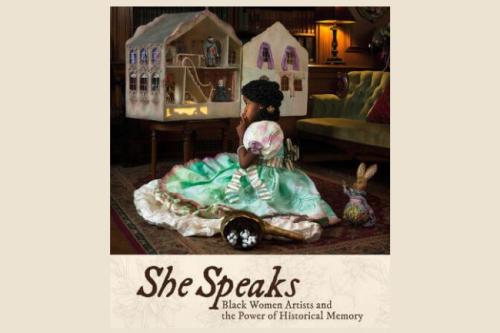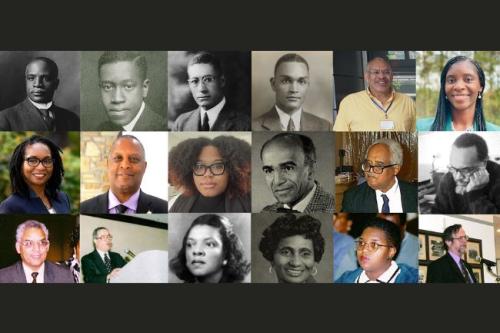WASHINGTON – April is Financial Literacy Month and Howard University experts are offering insight and advice into achieving financial stability and wealth generation. Our experts emphasize the importance of financial proficiency, fluency over literacy, and offer tips on how people of color can deepen their understanding on the principle of finances.
Financial literacy is knowledge and understanding that enable sound financial decision making and effective management of personal finances. The TIAA Institute annually issues the Personal-Finance Index report to explore the state of financial literacy in the Black community. In 2023, it was found that, on average, African American adults answered 38% of the P-Fin Index questions correctly. Only 28% answered more than half of index questions correctly, indicating low financial literacy in the Black community.
There are many barriers to financial literacy and wealth generation in the Black community. “In my research, I have found that many Black families think that they are entitled to the ‘good things of life’ of which they were deprived for various reasons. Therefore, rather than live moderately and save for the future, they tend to spend beyond their means and imitate those who are truly wealthy with material items,” said Denise Streeter, Ph.D., CPA, associate professor of finance in the Howard University School of Business. “Many Black families focus on purchasing luxurious clothing, cars, sneakers, etc., without understanding that those items depreciate without further action. Building wealth requires obtaining appreciable or earning assets that can be used to fund further financial growth.”
According to Streeter, the impact of historical trauma also plays a role in the lack of financial literacy and hesitancy to pursue wealth generating activities for many Black adults. Tragedies like the 1921 Tulsa massacre have contributed to the idea that wealth in the Black community won’t be protected and have sowed seeds of distrust in institutions meant to promote financial growth. Institutions of higher education and financial advisement are sometimes perceived as antagonistic to the goals of Black families and members of the community who pursue them are sometimes chastised. Building wealth requires advisement from financial planners and other experts, yet Black families are missing out on their benefits, while people from other cultures start to use them at a young age.
“Financial literacy is not the end all be all for Black people in America. In many situations, it doesn’t matter how much we know because the system was not set up for us. There needs to be legislation that remedies the racial disparities that exist in this country,” said Curtis Kidd Telemaque, Ph.D., director of the HPS Center for Financial Excellence in the Howard University School of Business.
Financial institutions promoting financial literacy often unfairly perceive a lower level of financial literacy to Black people without proper assessment. Kidd experienced this phenomenon at the HPS Center. “After George Floyd, there was an influx of financial services actors flooding into our space. One of the things they focused on was financial literacy campaigns. The campaigns targeting my students focused on very basic concepts like credit scores and credit cards,” said Kidd. “My students, who are finance majors, needed to delve more into financial proficiency and fluency, which focuses more on the calculations and understanding of compound interest rates, the macroeconomy and their impacts at an individual or corporate level.”
To navigate the macroeconomic and sociopolitical factors that impact the financial health of the Black community, our experts suggest proactive measures. The best places to look to increase your personal financial literacy are in financial publications. Reading daily financial news elicits questions that, in turn, encourage research and deeper understanding.
When pursuing investment opportunities, our experts suggest seeking professional advice and adjusting investments based on age and status. Generally, younger people can have higher risk tolerance and invest in the stock market, while older people typically focus on low-risk investments, even though they have low returns.
“As they pursue wealth building efforts, people of color must change their mindset about money. I suggest that each person starts with a list of their thoughts about money. Then, contact your bank or retirement plan office for free financial training to determine the realities of your thoughts about money. We must demystify the process and benefits of wealth building,” said Streeter. “Once people’s minds are open to the knowledge that everyone is worthy of being wealthy, then the Financial Planning/Wealth Management program at Howard is here to help with efforts such as ‘Wealth Wednesday,’ a monthly event to advance your financial planning.”
###





